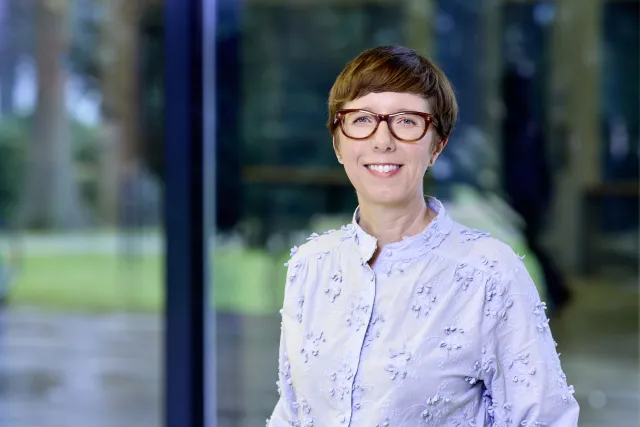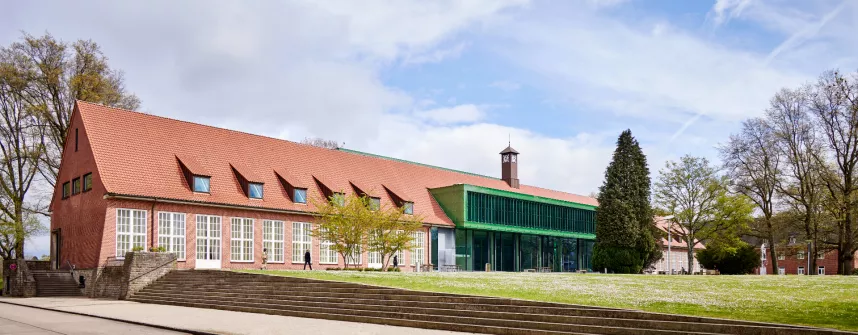How the COVID-19 pandemic impacted social cohesion
More than any other recent event, the COVID-19 crisis has affected the lives of people around the world. In a special issue of the online journal "Frontiers in Sociology", edited by sociologists from Constructor University and the Otto von Guericke University of Magdeburg, a group of researchers documents the global impact of the pandemic on the social cohesion of individual population groups and world regions.

Did the pandemic bring societies together or increase the drifting apart? That was one of the central questions posed by the scientists. "The empirical knowledge gained in this special issue deepens our understanding of the social consequences of the pandemic," says Dr. Mandi Larsen, a sociologist at Constructor University, "a well-founded scientific basis is also important in order to be able to better counteract future pandemics in socio-political terms."
Together with her expert colleagues Dr. Georgi Dragolov and Prof. Dr. Jan Delhey from Constructor University and Otto von Guericke University of Magdeburg, she is responsible for the special issue. The trio also wrote the introduction to the special issue, published on May 10th, 2023.
In nine articles, the authors examine the consequences of the pandemic and the restrictive measures that governments implemented to contain it. They discuss, for example, the effects on vulnerable groups, such as children, the elderly, and migrants in various countries worldwide. One study looks at ideological polarization in the course of the pandemic, using Austria as an example, while another looks at Corona deniers in Germany. Other articles analyze the significance of poverty or describe the experiences with the pandemic in Russia.
What all studies have in common is that they focus on at least one of the three core elements of social cohesion, as outlined by the Bertelsmann Stiftung's Social Cohesion Radar, which was also developed by social scientists from the two universities: Social relationships, including loneliness; trust in institutions, especially political institutions; and the willingness to help and care for each other and to engage themselves for the common good. "Social cohesion is the glue that holds our society together," says Mandi Larsen. "This special issue provides a great deal of context to the state of research.”
The special issue, however, does not provide a straightforward answer to the question of whether the pandemic promoted togetherness or rather drove societies apart. That depends on the societal context, the measures put in place, and the phases of the pandemic, the sociologist says. "A better understanding of this complexity is the key to developing long-term strategies for managing the social consequences of this and future pandemics.
Link to special issue:
www.frontiersin.org/research-topics/30077/the-covid-19-pandemic-and-social-cohesion-across-the-globe
Scientific contact:
Dr. Mandi Larsen | University Lecturer for Methods of Empirical Social Research
mlarsen@constructor.university | Tel: +49 421 200-3411
Image 2: Dr. Mandi Larsen, Sociologist at Constructor University in Bremen is one of the editors of the special issue in Frontiers in Sociology. (Source: Constructor University)
About Constructor University:
An international community, vibrant and diverse. Offering academic excellence, ensuring the highest standards in research and teaching. Empowering students to solve the world's pressing challenges through knowledge and science: Constructor University is a top-ranked, English-speaking, private university. Founded in 2001, it provides a wide range of 25+ academic programs and PhD. The Constructor ecosystem comprises the University, located in Bremen, Germany, and an institute in Schaffhausen, Switzerland.
Over 1.800 students from more than 110 nations on campus benefit from a unique interdisciplinary, foundational theoretical and practical education. Enriched with a buzzing entrepreneurial culture that prepares young professionals to thrive in the job market. With 6.000+ alumni worldwide, our community keeps growing – with our highest cohort ever registered in 2022.
The research-centric faculty projects are funded by the German Research Foundation and the European Union's Framework Program for Research and Innovation as well as by globally leading companies.
The Constructor ecosystem benefits from partnerships with high-ranked universities such as Carnegie Mellon, the University of Geneva or the National University of Singapore School of Computing, and technology companies such as Anisoprint, JetBrains and ChemDiv.
Constructor is a global institution dedicated to addressing the main challenges of the world through science, education, and technology. Apart from the University in Bremen and an Institute in Schaffhausen (Switzerland), the ecosystem relies on several for-profit entities that provide technology infrastructures and solutions, life-long education programs, consulting services, and funding.
